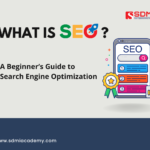In the ever-evolving landscape of digital marketing, staying ahead of the curve is essential for career growth. As we step into 2024, the demand for digital marketing skills continues to soar. Whether you are a seasoned professional or a newcomer to the field, honing your digital marketing skills can significantly enhance your career opportunities. This article will delve into the most crucial digital marketing skills for 2024, providing you with a roadmap to boost your career prospects.
Understanding the Digital Marketing Landscape
Before diving into specific skills, it’s important to understand the digital marketing landscape. Digital marketing encompasses various strategies and techniques used to promote products or services online. These include search engine optimization (SEO), social media marketing, content marketing, email marketing, pay-per-click (PPC) advertising, and more. The goal is to connect with potential customers and drive conversions through online channels.
Essential Digital Marketing Skills for 2024
1. Search Engine Optimization (SEO)
- Keyword Research: Understanding how to find and use relevant keywords is crucial for improving website visibility on search engines. Tools like Google Keyword Planner, SEMrush, and Ahrefs can help identify keywords that your target audience is searching for.
- On-Page SEO: Mastering on-page elements like meta tags, headers, and content optimization can boost your site’s search rankings. This involves optimizing title tags, meta descriptions, headers (H1, H2, etc.), and incorporating keywords naturally into your content.
- Technical SEO: Knowledge of website architecture, mobile optimization, and page speed is vital for technical SEO. Ensuring your website is crawlable by search engines, has a fast load time, and provides a good user experience on mobile devices are key aspects of technical SEO.
3. Content Marketing
- Content Creation: Creating high-quality, engaging, and valuable content is the backbone of content marketing. blog posts, articles, videos, infographics, and more. Content should be informative, relevant, and tailored to your audience’s needs.
- Content Strategy: Developing a content strategy that aligns with business goals and audience needs is essential. This involves planning what content to create, when to publish it, and how to promote it to reach your target audience.
- Visual Content: Utilizing images, videos, and infographics to enhance content engagement. Visual content is more likely to be shared and can help convey information more effectively than text alone.
3. Social Media Marketing
- Platform Proficiency: Being adept at using major social media platforms like Facebook, Instagram, LinkedIn, and Twitter. Each platform has its unique features and audience, and understanding how to leverage these can boost your social media marketing efforts.
- Engagement Tactics: Knowing how to engage with followers and foster community through interactive content and conversations. Responding to comments, hosting live sessions, and creating polls are effective ways to engage your audience.
- Analytics and Reporting: Understanding social media metrics and using data to refine strategies. Tools like Facebook Insights, Twitter Analytics, and LinkedIn Analytics can provide valuable insights into your social media performance.
4. Email Marketing
- Campaign Design: Creating effective email campaigns that capture attention and drive action. This includes designing visually appealing emails, writing compelling subject lines, and crafting engaging content.
- List Management: Building and maintaining a healthy email list. Segmenting your list based on subscriber interests and behaviors can improve the relevance of your emails and increase engagement rates.
- Personalization: Using personalization techniques to improve email open and click-through rates. Personalized emails that address the recipient by name and offer tailored content can significantly boost engagement.
5. Pay-Per-Click (PPC) Advertising
- Ad Creation: Designing compelling ad copy and visuals. Effective ads are clear, concise, and highlight the benefits of your product or service.
- Bid Management: Managing bids to maximize ROI on ad spend. This involves setting bid strategies, monitoring performance, and making adjustments to optimize ad spend.
- Analytics: Analyzing ad performance and making data-driven adjustments. Tools like Google Ads and Facebook Ads Manager provide detailed analytics to help you understand which ads are performing well and which need improvement.
6. Data Analytics
- Google Analytics: Proficiency in Google Analytics to track and analyze website performance. Unlock the power of Google Analytics to gain invaluable insights into user behavior, traffic sources, and conversion rates.
- Data Interpretation: Understanding how to interpret data to make informed marketing decisions. Analyzing trends, identifying patterns, and drawing actionable insights from data is crucial for optimizing marketing strategies.
- Reporting: Creating comprehensive reports to communicate insights and results. Clear, concise reports can help stakeholders understand the impact of your marketing efforts and make informed decisions.
7. Marketing Automation
- Tool Proficiency: Familiarity with marketing automation tools like HubSpot, Marketo, or Mailchimp. These tools can streamline repetitive marketing tasks, such as email campaigns and social media posts.
- Workflow Design: Designing automated workflows to streamline marketing processes. Automated workflows can nurture leads, trigger actions based on user behavior, and save time.
- Lead Nurturing: Using automation to nurture leads through the sales funnel. Automated emails, personalized content, and targeted campaigns can help move leads closer to conversion.
8. User Experience (UX) Design
- Website Design: Understanding the principles of user-centered design. A well-designed website is easy to navigate, visually appealing, and provides a seamless user experience.
- User Testing: Conducting user testing to gather feedback and improve website usability. Testing different design elements and gathering user feedback can help identify areas for improvement.
- Conversion Rate Optimization (CRO): Implementing CRO techniques to increase the percentage of visitors who convert into customers. This involves optimizing landing pages, call-to-action buttons, and other elements to improve conversion rates.
How to Enhance Your Digital Marketing Skills
1. Continuous Learning
- Online Courses: Enroll in online courses and certifications to stay updated with the latest trends and techniques. Websites like Coursera, Udemy, and LinkedIn Learning offer a plethora of digital marketing courses.
- Webinars and Workshops: Get involved in webinars and workshops led by industry professionals. These events provide valuable insights and practical knowledge from experienced professionals.
2. Practical Experience
- Freelancing: Take on freelance projects to apply your skills in real-world scenarios. Freelancing can provide hands-on experience and help you build a portfolio of work.
- Internships: Seek internships with companies that offer hands-on digital marketing experience. Internships can provide valuable learning opportunities and help you gain practical skills.
- Personal Projects: Start your own blog or social media channel to experiment with different strategies. Personal projects can provide a platform to test new ideas and showcase your skills.
3. Networking
- Industry Events: Attend industry conferences and events to network with professionals and learn from their experiences. Networking can help you build connections and stay updated with industry trends.
- Online Communities: Join online communities and forums where digital marketers share insights and advice. Participating in these communities can provide valuable learning opportunities and support.
4. Staying Updated
- Follow Industry Blogs: Subscribe to leading digital marketing blogs like Moz, HubSpot, and Neil Patel to stay informed about the latest trends and updates. These blogs provide valuable insights and practical advice.
- Social Media: Follow digital marketing influencers and thought leaders on social media platforms. Engaging with their content can help you stay updated with industry news and trends.
The Role of Certifications in Digital Marketing
Certifications can add significant value to your resume and demonstrate your expertise to potential employers. Here are some valuable digital marketing certifications to consider in 2024:
- Google Analytics Certification: This certification demonstrates proficiency in Google Analytics, including data collection, analysis, and reporting.
- Google Ads Certification: This certification validates your skills in managing Google Ads campaigns, including ad creation, bid management, and performance analysis.
- HubSpot Content Marketing Certification: This certification covers the fundamentals of content marketing, including content creation, strategy, and promotion.
- Facebook Blueprint Certification: This certification validates your skills in managing Facebook ad campaigns, including ad creation, targeting, and performance analysis.
- SEMrush SEO Certification: This certification demonstrates proficiency in SEO techniques, including keyword research, on-page optimization, and technical SEO.
The Importance of Soft Skills
In addition to technical skills, soft skills play a crucial role in digital marketing. Here are some soft skills to cultivate:
- Creativity: The ability to think outside the box and come up with innovative ideas. Creativity is essential for developing unique and engaging content.
- Communication: Strong verbal and written communication skills to convey your ideas effectively. Clear communication is crucial for collaborating with team members and engaging with your audience.
- Analytical Thinking: The ability to analyze data and derive actionable insights. Analytical thinking helps you understand trends, identify opportunities, and make informed decisions.
- Adaptability: Being flexible and open to change in a dynamic industry. The digital marketing landscape is constantly evolving, and adaptability is essential for staying relevant and effective.
Conclusion
As digital marketing continues to evolve, so do the skills required to excel in this field. By focusing on enhancing your digital marketing skills in 2024, you can significantly boost your career opportunities. Stay committed to continuous learning, gain practical experience, and keep up with industry trends. With the right skills and mindset, you can navigate the ever-changing digital marketing landscape and achieve success in your career.






